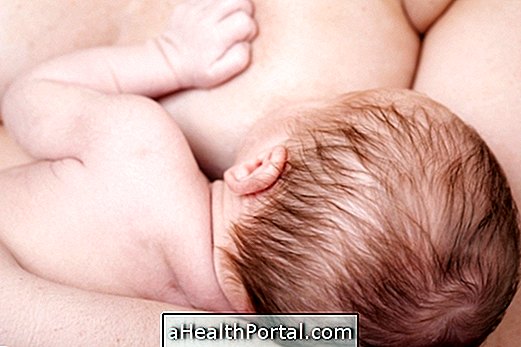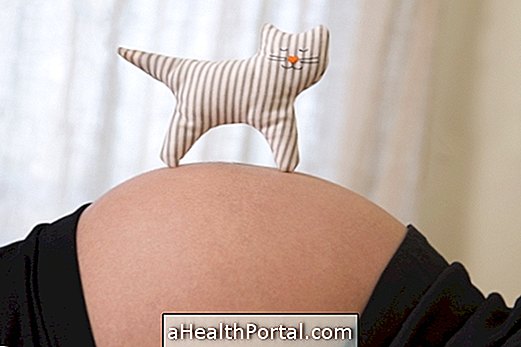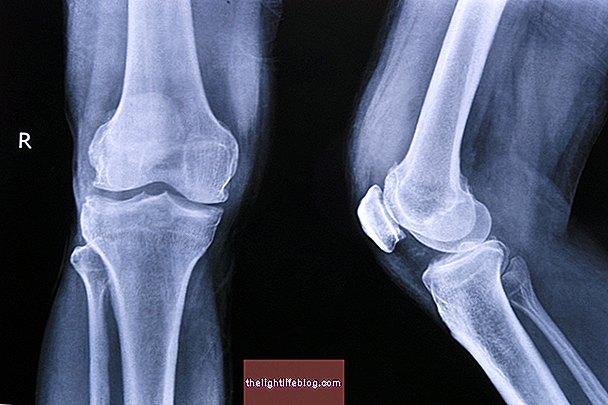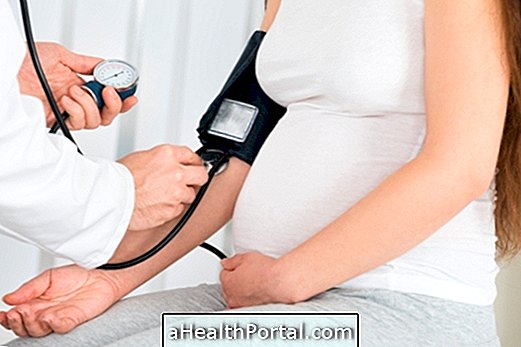It is normal for the feet and ankles to become swollen during pregnancy, and may start to swell around 6 months of gestation, but they swell much more, especially late in pregnancy, when labor is nearing.
To avoid swollen ankles in pregnancy, it is advised to take some care like drinking plenty of water, supporting your feet on a stool while you are sitting and wearing compression socks on the legs, to facilitate blood circulation.
It is also important to increase the consumption of diuretic foods such as watermelon, cucumber and celery, or juices made with ingredients that fight the retention of fluids in the body, besides avoiding the consumption of salt, fried foods and processed foods, as these increase the body swelling.

Here are tips on combating ankle swelling during pregnancy:
- Drink 2 to 3 liters of water a day, as being well hydrated reduces fluid retention;
- When you go to bed, prefer to lie on the left side;
- When sitting, support your feet on a stool or in a pile of newspapers, magazines or books, for example, so that they are at the same height of the thighs;
- When lying down, place your feet on one or two pillows to promote blood circulation;
- Do not wear tight shoes or high heels;
- Use compression stockings, according to the orientation of the obstetrician;
- Practice walking, swimming or cycling for at least 30 minutes, 3 times a week;
- Do not cross your legs when sitting;
- Do not stand for long;
- Eat diuretic foods like watermelon, for example.
In case of work or activities that require standing or sitting for a long time, it is important to use a foot lift and remember to get up and walk a little at least every 60 minutes.
Homemade strategy to deflate feet
The contrast bath, popularly known as 'heat shock' is also a great way to deflate feet and ankle. Here are the steps to do this in this very well explained video:

What to eat to reduce swelling
To reduce swelling, it is important to increase the intake of diuretic foods such as watercress, parsley, spinach, cucumber, beet, tomato, garlic, orange, passion fruit, watermelon, strawberry and lemon. In addition, it is important to avoid consuming foods that stimulate the retention of liquids, such as salt, sugar, packet snacks, fried foods, olive, sausage, canned and frozen products.
Diuretic Juice Recipe
The following juice helps fight against fluid retention, and you should drink 1 to 2 cups a day.
Ingredients:
- 1 medium slice of melon
- 200 ml of coconut water
- 1 tablespoon chopped mint
- 1 leaf of cabbage
How to prepare: Beat all ingredients in the blender and drink ice cream.
It is also important to remember that many teas with diuretic effects are contraindicated during gestation, such as parsley and horsetail tea. See the full list of teas that the pregnant woman can not take.
When to go to the doctor
If the swelling is severe and affects the hands, arms, and face, or if symptoms of tingling, excessive weight gain, neck pain or difficulty moving the fingers seek medical attention because these signs may indicate the presence of any complications of pregnancy, such as high blood pressure, gestational diabetes or pre-eclampsia, for example.






















